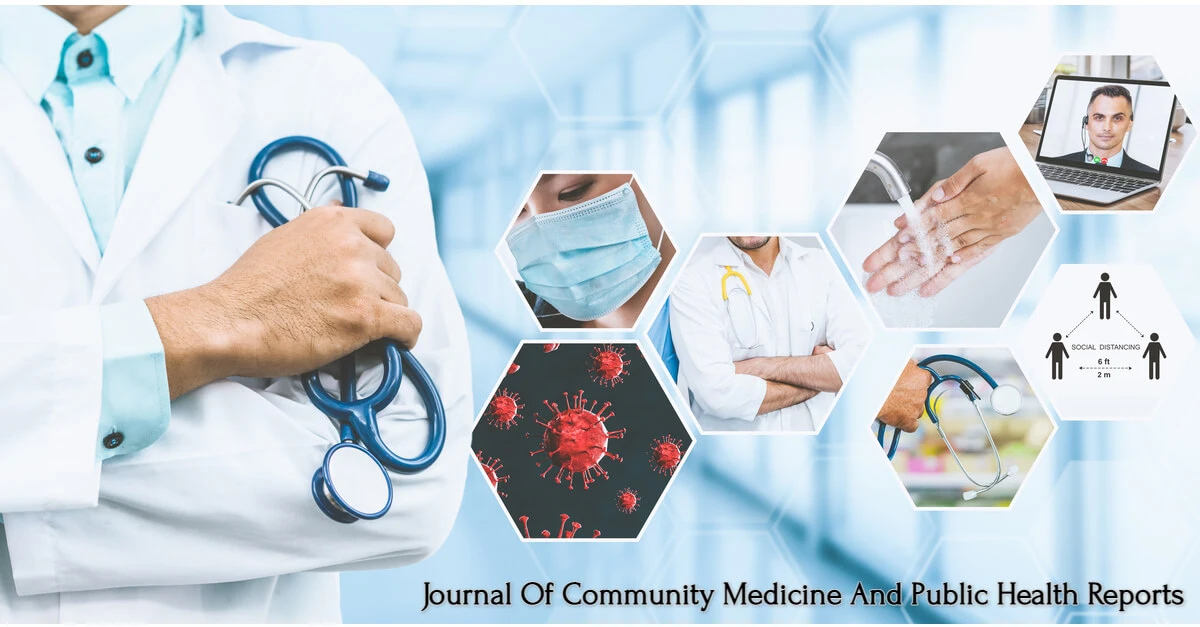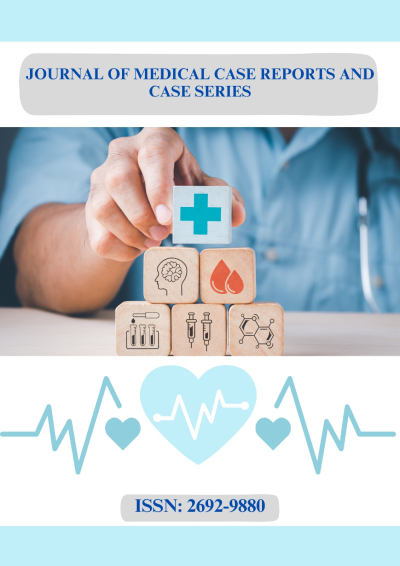Priyanka Gupta*
MSc, M.Phil., PhD, Post Doc, Indian Institute of Public Health Gandhinagar, Gandhinagar, Gujarat, India
*Corresponding Author: Priyanka Gupta, MSc, M. Phil., PhD, Post Doc, Indian Institute of Public Health Gandhinagar, Gandhinagar, Gujarat, India.
Abstract
Diagnoses and treatment of tuberculosis-Immune Reconstitution Inflammatory Syndrome (TB-IRIS) are extremely difficult, especially in resource-poor settings like North India where TB and HIV are common. The goal of this study is to improve patient outcomes by exploring the challenges associated with diagnosing and treating tuberculosis infection in North India. A lack of biomarkers, frequent co-infections that exacerbate clinical presentation, and restricted access to cutting-edge molecular tools are some of the diagnostic problems. When TB-IRIS coexists with other conditions, it might cause mismanagement and delays in diagnosis. With various degrees of success, treatment in resource- constrained contexts primarily depends on clinical judgement, empirical therapies, and corticosteroids. Community-based health programs and streamlined diagnostic criteria are promising options. It is imperative to design guidelines appropriate to each location and improve diagnostic capabilities with low-cost, efficient instruments. Collaboration between governmental and non-governmental organizations is vital for improving healthcare infrastructure and implementing evidence-based practices in TB-IRIS management.
Keywords: TB-IRIS, diagnostic challenges, management strategies, resource-limited settings, North India, tuberculosis, HIV.
Introduction
Tuberculosis-Immune Reconstitution Inflammatory Syndrome (TB- IRIS) is a significant complication among HIV-infected individuals initiating antiretroviral therapy (ART), particularly in regions with high tuberculosis (TB) prevalence like North India. The syndrome manifests as a paradoxical worsening of TB symptoms following the restoration of immune function, posing diagnostic and management challenges, especially in resource-limited settings.
Diagnostic Challenges
Diagnosing TB-IRIS in resource-limited settings in North India is challenging due to several factors: TB-IRIS can mimic TB relapse or treatment failure, leading to diagnostic confusion. Distinguishing between these conditions requires careful clinical judgment, which is often complicated by limited access to advanced diagnostic tools like molecular testing or imaging. Many healthcare facilities in North India lack access to sophisticated diagnostic tools such as PCR-based tests, advanced imaging (like CT or MRI), and biomarker assays that could facilitate early and accurate TB-IRIS diagnosis [1,8]. Often, healthcare providers rely on clinical criteria, which may not be sufficient for a definitive diagnosis. The presence of other opportunistic infections or conditions like malnutrition, common in resource-limited settings, further complicates the clinical picture [3]. These factors can obscure the diagnosis of TB-IRIS or contribute to its misdiagnosis.
Management Challenges
Healthcare providers in these settings may have limited training in recognizing and managing TB-IRIS. This lack of awareness can lead to underdiagnosis or misdiagnosis, delaying appropriate treatment [4]. Effective management of TB-IRIS in resource-limited settings requires a multifaceted approach, balancing the constraints of the healthcare environment with the need for effective treatment. In the absence of definitive diagnostic tools, empirical treatment based on clinical suspicion is often necessary. This approach involves continuing ART while managing TB-IRIS symptoms with anti- inflammatory drugs like corticosteroids, despite the risk of side effects [5]. Integrating TB-IRIS management into community-based care models can improve access to treatment. These models leverage local healthcare workers to monitor patients, ensuring timely recognition of symptoms and adherence to treatment protocols. Efforts should focus on enhancing diagnostic capabilities, even at the primary healthcare level. Simple interventions, such as training in the use of clinical scoring systems or deploying point-of-care tests, could significantly improve diagnostic accuracy [6].
Patient Education and Community Support
Educating patients about TB-IRIS and the importance of adhering to ART and TB treatment is crucial. Support groups and community outreach programs can play a key role in reducing stigma and encouraging early reporting of symptoms. There is a need for region-specific research to better understand the epidemiology of TB-IRIS in North India. Surveillance systems should be strengthened to track TB- IRIS cases, helping to refine treatment protocols and improve outcomes.
Conclusion
A multifaceted strategy that involves strengthening healthcare provider education, integrating community-based care models, and upgrading diagnostic infrastructure is needed to address the diagnostic and management problems of tuberculosis-infected isolates (TB-IRIS) in resource-constrained settings in North India. North Indian healthcare systems can improve the management of TB- IRIS and, eventually, the prognosis of patients with co-infections of HIV and TB by implementing these measures.
References
- Meintjes G, Lawn SD, Scano F, Maartens G, French MA, et al. (2008) Tuberculosis-associated immune reconstitution inflammatory syndrome: case definitions for use in resource- limited settings. Lancet Infect Dis. 8(8): 516-523.
- Haddow LJ, Colebunders R, Meintjes G, Lawn SD, Elliott JH, et al. (2010) Cryptococcal immune reconstitution inflammatory syndrome in HIV-1-infected individuals: proposed clinical case definitions. Lancet Infect Dis. 10(11): 791-802.
- Sharma SK, Soneja M (2011) HIV & immune reconstitution inflammatory syndrome (IRIS). Indian J Med Res. 134(6): 866- 877.
- Gupta P, Gupta A, Singh KP (2024) Tuberculosis Diagnosis in Patients Co-Infected with HIV: A Review. Austin J HIV/AIDS Res. 10(1): 1057.
- Kumarasamy N, Venkatesh KK, Devaleenol B, Poongulali S, Yeatman S, et al. (2011) Safety, Tolerability, and Effectiveness of Second-Line Antiretroviral Therapy in HIV-Infected Adults in India. J Acquir Immune Defic Syndr. 57(4): 305-312.
- Wilkinson RJ, Zinyama-Gutsire RB, Tsekvado D, et al. (2020) Outcomes of treatment for tuberculosis and immune reconstitution inflammatory syndrome in a high HIV-burden setting in Zimbabwe. Lancet Infect Dis. 20(5): 620-629.



